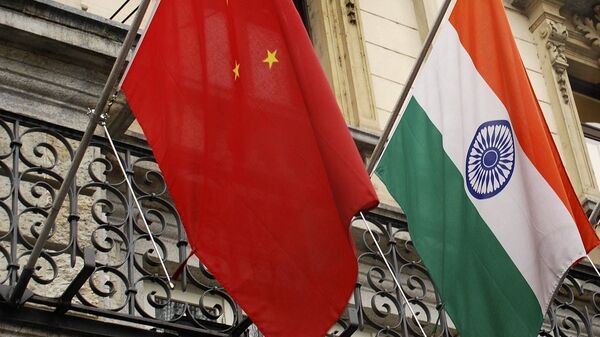India's leading English-language daily the Hindustan Times has found itself under fire from prominent social media users for carrying a four-page China Watch supplement in its 30 October edition, which the country's former foreign secretary, Kanwal Sibal, labelled as "totally incongruous with [the] seriousness of [the] border standoff".
Entirely agree. Amidst anodyne articles, one on Tibet, which is springboard of past and current Chinese aggression against India was included to mark a political point. Dalai Lama gets belittled too. Supplement totally incongruous with seriousness of border stand off. https://t.co/KDfQllP04B
— Kanwal Sibal (@KanwalSibal) October 30, 2020
The edition was first red-flagged on social media by veteran strategic affairs expert Brahma Chellaney on Friday. Chellaney remarked on Twitter that it was "unfortunate" the Hindustan Times was supposedly accepting money from Beijing even as the five-month border standoff continues to simmer in the Ladakh region.
A full-page advertorial by the Chinese Embassy in New Delhi on 1 October for China's National Day in the newspaper The Hindu also drew the ire of social media users.
It's unfortunate that, amid China's ongoing border aggression and a looming threat of war, Hindustan Times today published a 4-page, unvarnished CCP propaganda section. HT does carry a disclaimer that this isn't HT's own news. But its publication means HT is accepting CCP money. pic.twitter.com/pIkAVb7daJ
— Brahma Chellaney (@Chellaney) October 30, 2020
The renowned Indian expert went on to cite a study by the Washington-based, US government-funded think tank Freedom House, noting that the China Watch supplement "blurs the line between Chinese propaganda and foreign media's own reporting".
"Indeed, Chinese state media, government officials, and affiliated companies are achieving increased influence over key nodes in the global information flow, exploiting the more sophisticated technological environment, and showing a readiness to meddle in the internal political debates and electoral contests of other countries", states the Freedom House report, titled "Beijing's Global Megaphone".
Chellaney also cited news reports that the London-headquartered Daily Telegraph had been receiving nearly $1 million in annual revenue for over a decade for carrying the China Watch supplement. The UK newspaper reportedly discontinued its ties with the China Watch publishers earlier this year.
The Indian newspaper's decision to run the China Watch supplement also attracted criticism from other social media users, with the Maharashtra-based advocacy group Legal Rights Observatory (LRO) calling for a federal probe into the newspaper's finances.
Issue raised by @KanwalSibal @Chellaney is very serious, earlier @the_hindu caught furthering #CCP's #UFWD agenda for few bucks, when We r at war with China in #Ladakh. It's high time @HMOIndia call in @dir_ed @IncomeTaxIndia to track #Renminbi flow in HT @dpanjana @sunetrac pic.twitter.com/JMquSNZ0Zp
— Legal Rights Observatory- LRO (@LegalLro) October 31, 2020
The controversy comes as the Indian and Chinese militaries have been involved in a tense standoff in the remote eastern region of Ladakh since late April, with the most recent round of military-commander level meetings to defuse the situation having taken place on 12 October.
"The two sides agreed to maintain dialogue through military and diplomatic channels, and arrive at a mutually acceptable solution for disengagement as early as possible. They also agreed to implement the understandings reached by the leaders of the two countries, not to turn differences into disputes, and jointly safeguard peace and tranquility in the border areas", Indian Ministry of External Affairs (MEA) spokesperson Anurag Srivastava said at his weekly briefing on Thursday, while answering reporter queries on the current situation at the border.




